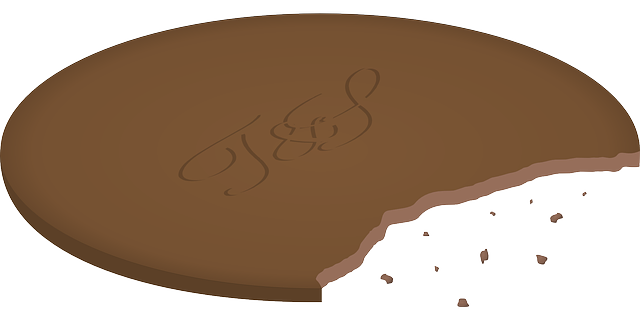طعن (قانون)
الطعون هى امكانية ممنوحة لمحاولة تغيير قرار ادارى أوحكم قضائي باظهار عدم الرضا به وطلب عرضه على جهة أعلى لاعادة البت في شأنه.
والطعون القضائية هي احدى نتائج نظم التقاضي على درجتين حيث يتيح هذا النظام لكل من طرفى النزاع – عند عدم رضاه عن الحكم – حتى يتقدم طالبا اعادة نظر القضية أمام محكمة أعلى في الدرجة – هي محكمة الاستئناف –قد يكون قضاتها أكبر سنا وأعلى درجة من قضاة محكمة أول درجة (المحكمة الجزئية أوالمحكمة الابتدائية) وبالتالي ينظر القضية من حديث قضاة أكثر خبرة. ومن المبادىء المتفق عليها أنه لا أحد يضار من الإستئناف – بمعنى حتى محكمة ثاني درجة لا تشدد الحكم على الخصم بحيث يجىء أكثر تشددا من الحكم الأول المطعون عليه.
تقديم الطعون
ولتقديم الطعون وضع القانون آجالا زمنية محددة إذا لم يتقدم الطالب بطلبه في خلالها ضاع عليه الحق في الطعن على الأحكام.
ومحكمة الإستئناف هي محكمة موضوع بمعنى أنها تبحث موضوع القضية بكامله من حديث وتحكم فيها بحكم مستقل عن الحكم الأول ولكن كما أسلفت لا يجىء أشد من الأول وأحكام الإستئناف هي أحكام نهائية.
وهناك إمكانية ثالثة للطعن على الأحكام وهي الطعن أمام أعلى سلطة قضائية وهي محكمة النقض. ومحكمة النقض ليست محكمة موضوع وإنما محكمة قانون وأحكام. بمعنى أنها ليست محكمة تقضى بحكم في القضية وإنما محكمة تبحث صحة الحكم الصادر من المحكمة الأدنى – محكمة الاستئناف – وإذا كان مطابقا لسليم القانون من حيث الاجراءات والتسبيب ومنطق بناء الحكم فان هى أجازت الحكم ورفضت الطعن أصبح حكم محكمة الاستئناف باتا ولا توجد طريقة لتقديم أية طعون أخرى. أما إذا هى قبلت الطعن ونقضت حكم الاستئناف أصبح الحكم كأن لم يكن ويعاد ملف القضية مرة أخرى الى محكمة الاستئناف لكى تبحثه من حديث ولكن بواسطة هيئة مختلفة عن الهيئة التى أصدرت الحكم الأول.
وفى أحكام الإعدام يحتم نص القانون على النيابة العامة حتى تطعن على قرار محكمة الجنايات أمام محكمة النقض وذلك كضمانة لعرض القضية على هيئة أعلى لاستبعاد أى شبهة خطأ أوظلم للمتهم. وعلى نطاق القانون الادارى يوجد نفس النظام حيث توجد المحكمة الادارية والمحكمة الادارية العليا كاستئناف ونقض على التوالى ولكن في مجال القانون الادارى.
من له الحق في الطعن
A party who files an appeal is called an appellant or petitioner, and a party on the other side is called a respondent (in most common-law countries) or an appellee (in the United States). A cross-appeal is an appeal brought by the respondent. For example, suppose at trial the judge found for the plaintiff and ordered the defendant to pay $50,000. If the defendant files an appeal arguing that he should not have to pay any money, then the plaintiff might file a cross-appeal arguing that the defendant should have to pay $200,000 instead of $50,000.
The appellant is the party who, having lost part or all their claim in a lower court decision, is appealing to a higher court to have their case reconsidered. This is usually done on the basis that the lower court judge erred in the application of law, but it may also be possible to appeal on the basis of court misconduct, or that a finding of fact was entirely unreasonable to make on the evidence.
The appellant in the new case can be either the plaintiff (or claimant), defendant, or respondent (appellee) from the lower case, depending on who was the losing party. The winning party from the lower court, however, is now the respondent. In unusual cases the appellant can be the victor in the court below, but still appeal. For example, in Doyle v Olby (Ironmongers) Ltd [1969] 2 QB 158, the claimant appealed (successfully) on the basis that, although he won in the court below, the lower court had applied the wrong measure of damages and he had not been fully recompensed.
An appellee is the party to an appeal in which the lower court judgment was in its favor. The appellee is required to respond to the petition, oral arguments, and legal briefs of the appellant. In general, the appellee takes the procedural posture that the lower court's decision should be affirmed.
امكانية الطعن
An appeal as of right is one that is guaranteed by statute or some underlying constitutional or legal principle. The appellate court cannot refuse to listen to the appeal. An appeal by leave or permission requires the appellant to move for leave to appeal; in such a situation either or both of the lower court and the appellate court may have the discretion to grant or refuse the appellant's demand to appeal the lower court's decision. A good example of this is the U.S. Supreme Court in which at least three justices must agree to hear the case if there is a constitutional issue.
In tort, equity, or other civil matters either party to a previous case may file an appeal. In criminal matters, however, the state or prosecution generally has no appeal as of right. And due to the double jeopardy principle, in the United States the state or prosecution may never appeal a jury or bench verdict of acquittal. But in some jurisdictions, the state or prosecution may appeal as of right from a trial court's dismissal of an indictment in whole or in part or from a trial court's granting of a defendant's suppression motion. Likewise, in some jurisdictions, the state or prosecution may appeal an issue of law by leave from the trial court and/or the appellate court. The ability of the prosecution to appeal a decision in favor of a defendant varies significantly internationally. All parties must present grounds to appeal, or it will not be heard.
By convention in some law reports, the appellant is named first. This can mean that where it is the defendant who appeals, the name of the case in the law reports reverses (in some cases twice) as the appeals work their way up the court hierarchy. This is not always true, however. In the United States federal courts, the parties' names always stay in the same order as the lower court when an appeal is taken to the circuit courts of appeals, and are re-ordered only if the appeal reaches the United States Supreme Court.
Direct or collateral
Many jurisdictions recognize two types of appeals, particularly in the criminal context. The first is the traditional "direct" appeal in which the appellant files an appeal with the next higher court of review. The second is the collateral appeal or post-conviction petition, in which the petitioner-appellant files the appeal in a court of first instance—usually the court that tried the case.
The key distinguishing factor between direct and collateral appeals is that the former only reviews evidence that was presented in the trial court, but the latter allows review of evidence dehors the record: depositions, affidavits, and witness statements that did not come in at trial. The standard for post-conviction relief is high, typically requiring the petitioner to demonstrate that the evidence presented was not available in the usual course of trial discovery.
Relief in post-conviction is rare and is most often found in capital or violent felony cases. The typical scenario involves an incarcerated defendant locating DNA evidence demonstrating the defendant's actual innocence.
أنواع الطعن
There are a number of appeal actions, their differences being potentially confusing, thus bearing some explanation. Three of the most common are an appeal to which the defendant has as a right, a writ of certiorari and a writ of habeas corpus.
An appeal to which the defendant has a right cannot be abridged by the court which is, by designation of its jurisdiction, obligated to hear the appeal. In such an appeal, the appellant feels that some error has been made in his trial, necessitating an appeal. A matter of importance is the basis on which such an appeal might be filed: generally appeals as a matter of right may only address issues which were originally raised in trial (as evidenced by documentation in the official record). Any issue not raised in the original trial may not be considered on appeal and will be considered estoppel. A convenient test for whether a petition is likely to succeed on the grounds of error is confirming that (1) a mistake was indeed made (2) an objection to that mistake was presented by counsel and (3) that mistake negatively affected the defendant’s trial.
A writ of certiorari, otherwise know as simply as cert, is an order by a higher court directing a lower court to send record of a case for review, and is the next logical step in post-trial procedure. While states may have similar processes, a writ of cert is usually only issued, in the United States, by the Supreme Court, although some states retain this procedure. Unlike the aforementioned appeal, a writ of cert is not a matter of right. A writ of cert will have to be petitioned for, the higher court issuing such writs on limited bases according to constraints such as time. In another sense, a writ of cert is like an appeal in its constraints; it too may only seek relief on grounds raised in the original trial.
A writ of habeas corpus is the last opportunity for the defendant to find relief against his guilty conviction. Habeas corpus may be pursued if a defendant is unsatisfied with the outcome of his appeal and has been refused (or did not pursue) a writ of cert, at which point he may petition one of several courts for a writ of habeas corpus. Again, these are granted at the discretion of the court and require a petition. Like appeals or writs of cert, a writ of habeas corpus may overturn a defendant's guilty conviction by finding some error in the original trial. The major difference is that writs of habeas corpus may, and often, focus on issues that lay outside the original premises of the trial, i.e., issues that could not be raised by appeal or writs of cert. These often fall in two logical categories: (1) that the trial lawyer was ineffectual or incompetent or (2) that some constitutional right has been violated.
Notice of appeal
A notice of appeal is a form or document that in many cases is required to begin an appeal. The form is completed by the appellant or by the appellant's legal representative. The nature of this form can vary greatly from country to country and from court to court within a country.
The specific rules of the legal system will dictate exactly how the appeal is officially begun. For example, the appellant might have to file the notice of appeal with the appellate court, or with the court from which the appeal is taken, or both.
Some courts have samples of a notice of appeal on the court's own web site.
The deadline for beginning an appeal can often be very short: traditionally, it is measured in days, not years. This can vary from country to country, as well as within a country, depending on the specific rules in force.
How an appeal is processed
Generally speaking the appellate court examines the record of evidence presented in the trial court and the law that the lower court applied and decides whether that decision was legally sound or not. The appellate court will typically be deferential to the lower court's findings of fact (such as whether a defendant committed a particular act), unless clearly erroneous, and so will focus on the court's application of the law to those facts (such as whether the act found by the court to have occurred fits a legal definition at issue).
If the appellate court finds no defect, it "affirms" the judgment. If the appellate court does find a legal defect in the decision "below" (i.e., in the lower court), it may "modify" the ruling to correct the defect, or it may nullify ("reverse" or "vacate") the whole decision or any part of it. It may, in addition, send the case back ("remand" or "remit") to the lower court for further proceedings to remedy the defect.
In some cases, an appellate court may review a lower court decision de novo (or completely), challenging even the lower court's findings of fact. This might be the proper standard of review, for example, if the lower court resolved the case by granting a pre-trial motion to dismiss or motion for summary judgment which is usually based only upon written submissions to the trial court and not on any trial testimony.
Another situation is where appeal is by way of re-hearing. Certain jurisdictions permit certain appeals to cause the trial to be heard afresh in the appellate court. An example would be an appeal from a magistrates' court to the Crown Court in England and Wales.
Sometimes, the appellate court finds a defect in the procedure the parties used in filing the appeal and dismisses the appeal without considering its merits, which has the same effect as affirming the judgment below. (This would happen, for example, if the appellant waited too long, under the appellate court's rules, to file the appeal.) In إنگلترة and many other jurisdictions, however, the phrase appeal dismissed is equivalent to the U.S. term affirmed; and the phrase appeal allowed is equivalent to the U.S. term reversed.
Generally, there is no trial in an appellate court, only consideration of the record of the evidence presented to the trial court and all the pre-trial and trial court proceedings are reviewed—unless the appeal is by way of re-hearing, new evidence will usually only be considered on appeal in very rare instances, for example if that material evidence was unavailable to a party for some very significant reason such as prosecutorial misconduct.
In some systems, an appellate court will only consider the written decision of the lower court, together with any written evidence that was before that court and is relevant to the appeal. In other systems, the appellate court will normally consider the record of the lower court. In those cases the record will first be certified by the lower court.
The appellant has the opportunity to present arguments for the granting of the appeal and the appellee (or respondent) can present arguments against it. Arguments of the parties to the appeal are presented through their appellate lawyers, if represented, or pro se if the party has not engaged legal representation. Those arguments are presented in written briefs and sometimes in oral argument to the court at a hearing. At such hearings each party is allowed a brief presentation at which the appellate judges ask questions based on their review of the record below and the submitted briefs.
It is important to note that in an adversarial system appellate courts do not have the power to review lower court decisions unless a party appeals it. Therefore if a lower court has ruled in an improper manner or against legal precedent that judgment will stand even if it might have been overturned on appeal.
United States
The الولايات المتحدة legal system generally recognizes two types of appeals: a trial de novo or an appeal on the record.
A trial de novo is usually available for review of informal proceedings conducted by some minor judicial tribunals in proceedings that do not provide all the procedural attributes of a formal judicial trial. If unchallenged, these decisions have the power to settle more minor legal disputes once and for all. If a party is dissatisfied with the finding of such a tribunal, one generally has the power to request a trial de novo by a court of record. In such a proceeding, all issues and evidence may be developed newly, as though never heard before, and one is not restricted to the evidence heard in the lower proceeding. Sometimes, however, the decision of the lower proceeding is itself admissible as evidence, thus helping to curb frivolous appeals.
In an appeal on the record from a decision in a judicial proceeding, both appellant and respondent are bound to base their arguments wholly on the proceedings and body of evidence as they were presented in the lower tribunal. Each seeks to prove to the higher court that the result they desired was the just result. Precedent and case law figure prominently in the arguments. In order for the appeal to succeed, the appellant must prove that the lower court committed reversible error, that is, an impermissible action by the court acted to cause a result that was unjust, and which would not have resulted had the court acted properly. Some examples of reversible error would be erroneously instructing the jury on the law applicable to the case, permitting seriously improper argument by an attorney, admitting or excluding evidence improperly, acting outside the court's jurisdiction, injecting bias into the proceeding or appearing to do so, juror misconduct, etc. The failure to formally object at the time, to what one views as improper action in the lower court, may result in the affirmance of the lower court's judgment on the grounds that one did not "preserve the issue for appeal" by objecting.
In cases where a judge rather than a jury decided issues of fact, an appellate court will apply an abuse of discretion standard of review. Under this standard, the appellate court gives deference to the lower court's view of the evidence, and reverses its decision only if it were a clear abuse of discretion. This is usually defined as a decision outside the bounds of reasonableness. On the other hand, the appellate court normally gives less deference to a lower court's decision on issues of law, and may reverse if it finds that the lower court applied the wrong legal standard.
In some rare cases, an appellant may successfully argue that the law under which the lower decision was rendered was unconstitutional or otherwise invalid, or may convince the higher court to order a new trial on the basis that evidence earlier sought was concealed or only recently discovered. In the case of new evidence, there must be a high probability that its presence or absence would have made a material difference in the trial. Another issue suitable for appeal in criminal cases is effective assistance of counsel. If a defendant has been convicted and can prove that his lawyer did not adequately handle his case and that there is a reasonable probability that the result of the trial would have been different had the lawyer given competent representation, he is entitled to a new trial.
In the United States, a lawyer traditionally starts an oral argument to any appellate court with the words "May it please the court."
After an appeal is heard, the mandate is a formal notice of a decision by a court of appeal; this notice is transmitted to the trial court and, when filed by the clerk of the trial court, constitutes the final judgment on the case, unless the appeal court has directed further proceedings in the trial court. The mandate is distinguished from the appeal court's opinion, which sets out the legal reasoning for its decision. In some U.S. jurisdictions the mandate is known as the remittitur.
Appellate review
Appellate review is the general term for the process by which courts with appellate jurisdiction take jurisdiction of matters decided by lower courts. It is distinguished from judicial review, which refers to the court's overriding constitutional or statutory right to determine if a legislative act or administrative decision is defective for jurisdictional or other reasons (which may vary by jurisdiction).
In most jurisdictions the normal and preferred way of seeking appellate review is by filing an appeal of the final judgment. Generally, an appeal of the judgment will also allow appeal of all other orders or rulings made by the trial court in the course of the case. This is because such orders cannot be appealed as of right. However, certain critical interlocutory court orders, such as the denial of a request for an interim injunction, or an order holding a person in contempt of court, can be appealed immediately although the case may otherwise not have been fully disposed of.
In American law, there are two distinct forms of appellate review, direct and collateral. For example, a criminal defendant may be convicted in state court, and lose on direct appeal to higher state appellate courts, and if unsuccessful, mount a collateral action such as filing for a writ of habeas corpus in the federal courts. Generally speaking, "[d]irect appeal statutes afford defendants the opportunity to challenge the merits of a judgment and allege errors of law or fact. ... [Collateral review], on the other hand, provide[s] an independent and civil inquiry into the validity of a conviction and sentence, and as such are generally limited to challenges to constitutional, jurisdictional, or other fundamental violations that occurred at trial." Graham v. Borgen, __ F 3d. __ (7th Cir. 2007) (no. 04-4103) (slip op. at 7) (citation omitted).
In Anglo-American common law courts, appellate review of lower court decisions may also be obtained by filing a petition for review by prerogative writ in certain cases. There is no corresponding right to a writ in any pure or continental civil law legal systems, though some mixed systems such as Quebec recognize these prerogative writs.
انظر أيضا
- Appellate court
- Appellee
- اجراءات مدنية
- محكمة النقض في انگلترة وويلس
- محكمة النقض
- Courts-martial in the United States
- اجراءات جنائية
- Defendant
- Interlocutory appeal
- قائمة الموضوعات القانونية
- Plaintiff
- Pursuer
- Respondent
- Reversible error
- Supreme Court of the United States
- Writ of Certiorari
- Writ of habeas corpus
- أمر امتثال
الهامش
- ^ "Consultation Paper on Prosecution Appeals Brought in Cases of Indictment". Law Reform Commission of Ireland.
- ^ "UK Law Online". University of Leeds. Retrieved 2008-03-03.
- ^ "Special Habeas Corpus Procedures in Capital Cases". United States Office of the Law Revision Counsel. Retrieved 2008-03-03.
- ^ "State of Ohio". Ohio 12th District Court of Appeals. Retrieved 2008-03-03.
وصلات خارجية
- What Can Appeals Do for You?
















